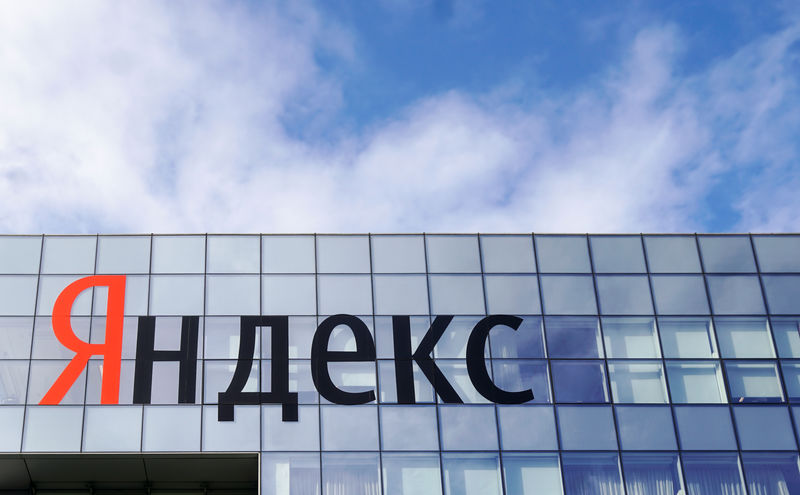By Nadezhda Tsydenova and Alexander Marrow
MOSCOW (Reuters) - Russian internet group Yandex raised its 2019 revenue forecast for a third time on Friday after strong third-quarter growth, but its shares fell after an earnings call provided little clarity on its response to a draft foreign ownership law.
Chief Executive Arkady Volozh said on Friday's call that the initial version of a draft law aimed at limiting foreign shareholding in Russian IT firms was "very damaging", saying the company was in discussions with the government over the proposals.
"As we look to address national interests, we want to do so in a way that supports our own business interests and the interests of all of our stakeholders," Volozh said, adding that he remained "extremely committed" to Yandex and will continue to lead it.
He added that, should the draft legislation become law, Yandex would "recognise the importance of ensuring that shareholders’ economic interests are not diluted".
He did not provide other details of a possible plan.
Yandex shares were down 1.2% as of 1452 GMT, compared to a drop in the wider index of 0.5%. They have been under pressure since reports emerged in July of the draft law to cap foreign voting power in the company at 20%.
Shares had seemed to be paring losses after the government last weekend revised proposals on the cap to just under 50%.
VTB equities analyst Vladimir Bespalov said ongoing uncertainty surrounding the bill was still having a negative effect on Yandex's share dynamics, despite the results showing strong business growth.
"The company's statements on this issue during the conference call did not provide any clarity," he said.
CONTINUED GROWTH
The company, often referred to as "Russia's Google (NASDAQ:GOOGL)" for its wide range of online services, on Friday lifted its guidance for growth in rouble-based revenues, excluding its online commerce site Yandex.Market, to 36-38% from a previous forecast of 32-36%.
Third-quarter revenue grew 38% year-on-year to 45 billion roubles ($704.89 million), its earnings statement showed, while adjusted net income rose 12% to 6.9 billion roubles.
Revenues in Yandex's taxi segment jumped 89%, accounting for a fifth of total revenues, supported by a higher number of rides and growth in its corporate taxi offering.
Yandex.Drive, the company's car-sharing service, also contributed strong growth, becoming the world's second-largest car-sharing service, according to Volozh.
Yandex will begin testing its driverless cars in the United States next summer.
Adjusted earnings before interest, tax, depreciation and amortisation (EBITDA) rose 29% year-on-year to 13.9 billion roubles.
The rate of growth in the taxi segment and adjusted net income was slower than in the second quarter. Yandex Chief Operating Officer Greg Abovsky had predicted slower taxi segment growth in July.
Abovsky did point to the "very impressive" results of Yandex.Zen, a content feed and blogging platform, with revenues of 7.7 billions roubles in September alone, a 62% increase year-on-year.
Yandex's rapid growth and the scale of its business have caught the attention of Russian policymakers, who said they believe that IT companies of such scale should be registered in Russia and controlled by Russian shareholders.
Yandex N.V., the parent company of Yandex Group, is registered in the Netherlands. Volozh, who holds 48.41% of the voting rights in the company, holds a number of passports, including a Russian one.
